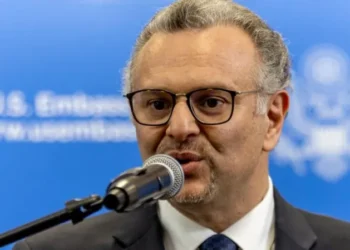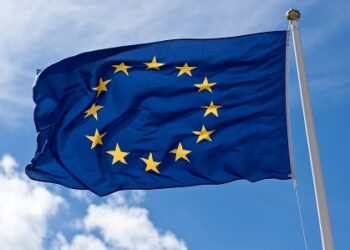By Enyichukwu Enemanna
For keen observers in the West African regional political environment, the decision of junta-led trio of Mali, Burkina Faso and Niger to quit their membership of Economic Community of West African States (ECOWAS) may not have come as a surprise. Heritage Times HT recalls that in Mali, an interim civilian government was overthrown through a coup in 2020, while in Burkina Faso, a military government was in 2022 shown the exit door through the barrel of gun. July last year, the wave hit Niger as a democratically elected government was truncated by presidential guards, effectively bringing the leadership of the three West African nations under the control of the military.
This brought about strained relations between ECOWAS and the three member nations, leading the body to wield the big stick, axing them out of its fold through indefinite suspension at various times.
After their failed repeated appeals for reinstatement into the bloc, the three nations in September 2023 formed an alliance known as Alliance of Sahel States, seeking to help each other against possible threats of armed rebellion or external aggression, in response to ECOWAS’ threat to invade Niger with an artillery and oust the coup leader, Tchiani Abdourahamane who overthrew and detained President Mohamed Bazoum along with family members.
“Any attack on the sovereignty and territorial integrity of one or more contracted parties will be considered an aggression against the other parties,” the Alliance said in the pact which also binds the three countries to work to prevent or settle armed rebellions within.
“I have today signed with the Heads of State of Burkina Faso and Niger the Liptako-Gourma charter establishing the Alliance of Sahel States, with the aim of establishing a collective defence and mutual assistance framework,” Mali military leader Assimi Goita said on his X social media account.
About three months later, Prime Ministers of the three countries at a joint press conference in Niamey, the capital of Niger, affirmed their commitment to a shared future. “From now on, we say, whether you’re from Mali, Niger or Burkina, we have the same destiny. We’re going in together,” said Burkinabe premier Appolinaire Joachim Kyelem de Tambela at the press conference. He added, “It is up to us to take control of our destiny.”
“Inhumane” Punitive Measures Against Coup?
The three countries did not fail to express their disappointment over ECOWAS’ decision to impose sanctions on them following the undemocratic change of governments. In their joint withdrawal announcement on January 28, the interim leaders criticised the West African regional organisation for its lack of support in the fight against terrorism and for adopting “illegal, illegitimate and inhumane” means to impose a sanction.
In their own estimation, ECOWAS acted in bad faith by axing them out of the body, which they were all founding members in 1975. They said ECOWAS had “drifted from the ideals of its founding fathers and the spirit of An-Africanism.” They go on to say that ECOWAS “under the influence of foreign powers, betraying its founding principles, has become a threat to member states and peoples.”
Arising from the July coup for instance, the bloc suspended all commercial transactions with Niger, froze its state assets in the regional central bank, froze assets of the state and state enterprises in commercial banks, and suspended all financial assistance with regional development banks. That is not all. A planned 30 billion CFA francs ($51 million) bond issuance for Niger in the West African regional debt market was cancelled by the regional central bank. Additionally, Nigeria cut power supply to the country on the 80 megawatt Birnin-Kebbi line, while Ivory Coast suspended imports and exports of Nigerien goods. Similar trade and financial embargo were equally emplaced on Mali and Burkina Faso in response to the coups.
But responding to their announcement to quit the regional body, ECOWAS said the three countries were “important members of the Community” and the bloc “remains committed to finding a negotiated solution to the political impasse.” The body further notes that it was yet received formal notification from the countries about their withdrawal from the bloc. According to the ECOWAS treaty, member states wishing to withdraw must give written notice a year in advance, and continue to abide by its provisions during that year.
Political Concerns
The heavy sanctions have also produced a minimal result with regards to making the three countries hand over power to civilian authorities, rather it has endangered negotiations regarding their electoral timetable, which the military governments had shown little inclination to put in place.
In Mali for instance, which became the first country to be hit by the wave of coups that has continue to spread across West Africa, the planned transition to democratically elected government in 2022 collapsed. After the August 2020 coup that toppled President Ibrahim Boubacar Keïta, the military then installed a civilian government, hoping to hold elections within two years, scheduled for February 27, 2022. However, a second coup in May 2021 shattered that plan.
READ ALSO: Nigeria: NCDMB To Sustain Push For STEM Education, Rewards Schools At Science Quiz Close-Out
Since then, the length of the transition period has changed several times. At the end of December 2021, following a “national consultation,” Mali’s interim President Assimi Goïta proposed extending it by five years. This was later reduced to two years under pressure from ECOWAS. The pledge by Goïta to hold elections this month may likely not be achievable following the recent developments.
The three junta-led states have repeatedly argued that they want to restore security before organising elections as they struggle to deal with jihadist insurgencies linked to al Qaeda and Islamic State in their various countries. Niger’s military leaders have said they want up to three years for a transition to democratically elected government.
Burkina Faso’s Captain Ibrahim Traoré, who in September 2022 ousted Lieutenant-Colonel Paul-Henri Sandaogo Damiba had initially said that he wanted to respect this timetable, but later changed his mind. “It’s not a priority, I’ll tell you that clearly, security is the priority,” he said, when asked about holding elections a year later.
What for Nigeria?
A forensic and social psychologist and public affairs analyst based in Abuja Nigeria, Dr. Law Mefor told Heritage Times HT that, the exit of the countries from the regional body could have a grave security implication on Nigeria that has in the last 49 years played the “big brother” role in running of ECOWAS.
He said, “The countries border on Nigeria and have been grappling with insurgency and terrorism just like Nigeria. They have been part of Nigerian international coalition for fight against terrorism in Nigeria and in Lake Chad basin. Don’t forget, President (Bola) Tinubu is the current ECOWAS chairman and these countries particularly Niger may start treating Nigeria as an enemy and open their borders for terrorists to have a safe corridor into Nigeria. That will be disastrous for our country.
“Again, economically, River Niger has its source in Niger and if that country dams the source of River Niger, our hydropower will be done for. Also, in terms of diplomacy, the relevance of ECOWAS is now being called to question and this may mean the beginning of the end of ECOWAS and happening under Tinubu as ECOWAS chairman is not good for him and Nigeria.”
Meanwhile, some civil society organisations have equally raised concerns over the withdrawal of the three countries from the body. In a letter addressed to the Chairman of Authority of Heads of States of ECOWAS, Nigeria’s President Bola Tinubu, the CSOs said the withdrawal of these countries posed a direct threat to the collaborative efforts required to combat regional security challenges.
It specifically said Mali and Niger were critical in the fight against terrorism and insurgency, given their geographic positioning and the nature of cross-border security threats. “These countries, particularly Mali and Niger, are critical in the fight against terrorism and insurgency, given their geographic positioning and the nature of cross-border security threats. Their departure from ECOWAS not only weakens the regional security framework but also leaves Nigeria more vulnerable to the spillover of instability and terrorist activities from these neighbouring countries”, the letter reads in part.
“Lack of Cohesion Within ECOWAS”
For the Executive Director of Development Specs Academy, Prof. Okey Ikechukwu, the departure of the three countries is an indictment on ECOWAS and indeed indication of lack of cohesion. He is in total alignment with Dr. Mefor who believes that the “relevance of ECOWAS is now being called to question.”
“It is further indication of lack of cohesion within the organisation. The question we should also ask ourselves is, has ECOWAS really been an effective regional body? The other question is, all these members — those who are still there and those who are leaving, what has been their funding contribution to ECOWAS? Nigeria has been the biggest financier of the body, playing big brother for a long time,” he told Heritage Times HT.
He is also added, “This is not entirely not surprising, frankly. Not too many ECOWAS countries have been happily part of the bloc. This is a manifestation of it, some of them are military regimes. Also, regional group all over the world are breaking out, so we can’t be an exception.”



































